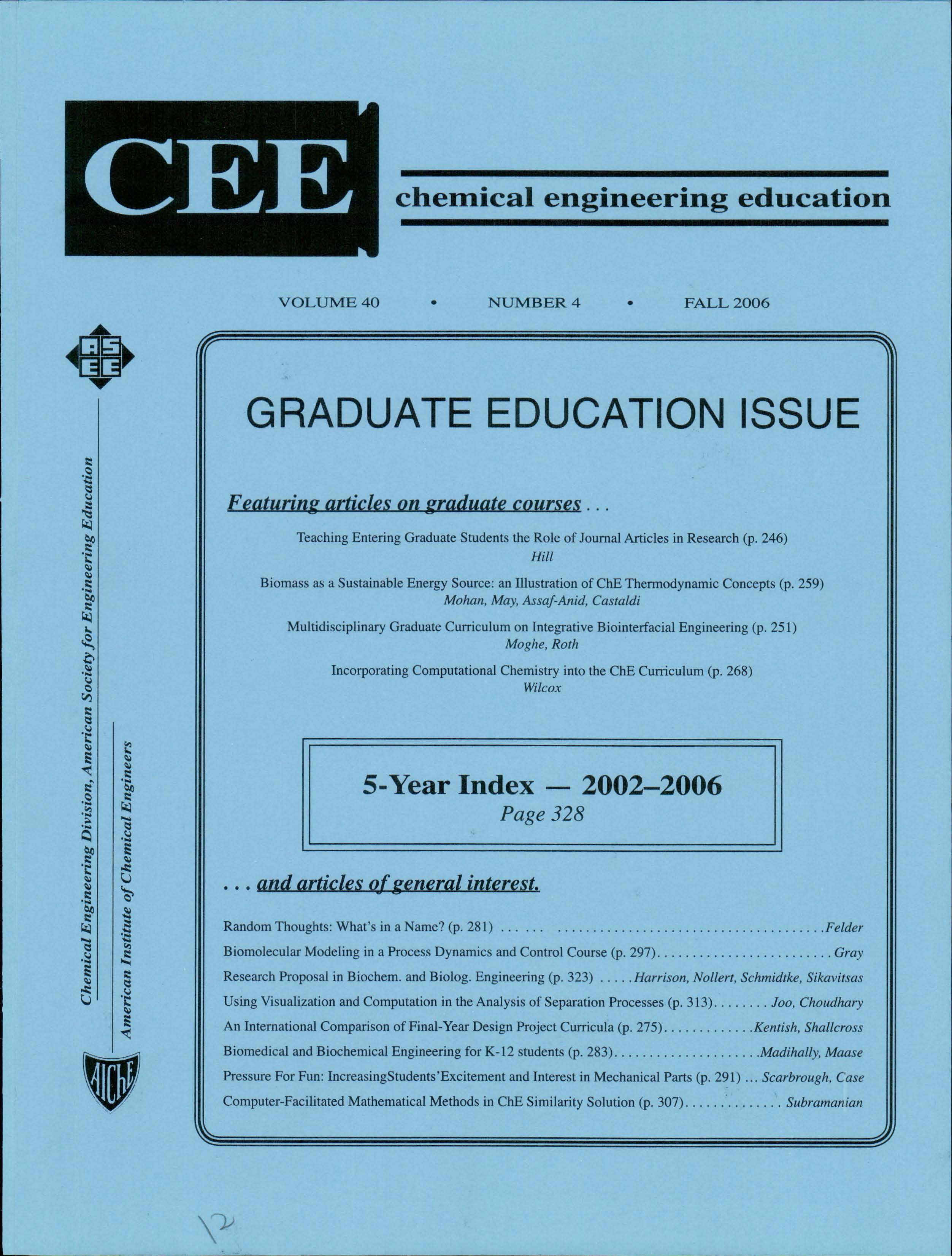Biomass as a Sustainable Energy Source: An Illustration of Chemical Engineering Thermodynamic Concepts
Resumen
The ever-increasing global demand for energy has sparked renewed interest within the engineering community in the study of sustainable alternative energy sources. This paper discusses a power generation system which uses biomass as “fuel” to illustrate the concepts taught to students taking a graduate level chemical engineering process thermodynamics course. The students were asked to propose solutions as to how a bioreactor might be used to decompose the biomass anaerobically and subsequently generate power. The purpose of the assignment was to give the students a better understanding of chemical thermodynamics by incorporating abstract thermodynamic principles, such as fugacity, solubility, and multi-phase equilibrium and to give them a chance to apply these principles to a relevant, practical, and open-ended situation. Specifically, the students were required to provide a full understanding of the bioreactor, and to develop the appropriate thermodynamic relationships to determine preferred system conditions which would accelerate the decomposition process. Among the characteristics examined were the types of byproducts formed, how these byproducts distribute themselves between the liquid and vapor phases, and the preferred concentration of carbon in the feed stream as a function of residence time, temperature, and pressure.


